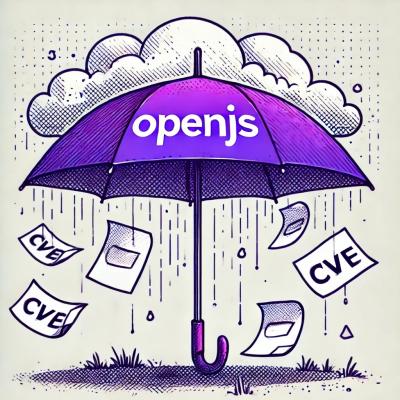
Research
Security News
Malicious npm Package Wipes Codebases with Remote Trigger
A malicious npm typosquat uses remote commands to silently delete entire project directories after a single mistyped install.
github.com/xial-thu/klog
inspired by istio/klog.
import this package by github.com/xial-thu/klog
for example, in main.go
// Unchanged
klog.InitFlags(nil)
flag.StringVar(&kubeconfig, "kubeconfig", "", "path to Kubernetes config file")
flag.Parse()
// Append a new API
klog.Singleton()
If Singleton() is not called, the default global no-ops logger will work, which means you are not able to see any real log.
Due to some gaps between klog and zap, parameters shall be converted, and the conversion must be done after flag.Parse(). klog.Singleton() inits an unique global logger whose configuration is slightly different from default zap production configuration at:
Timekey is set to "time"EncodeTime is set to ISO8601TimeEncoderNot all flags defined in klog is supported, or rather say, not all the flags still make sense. Only alsologtostderr and v is supported currently.
v: still supports klog.V(2).Info() syntax. But the level of klog.Info() is INFO; that klog.V(3).Info() is DEBUG. If v is set to zero, zap DEBUG log will be ignored. Default to 0alsologtostderr: default to true. If set to false, INFO and DEBUG log will only output to stdoutThere're 3 APIs:
With(): parse each field and value from input. WithFields(struct{A string}{"hi"}) will output "A":"hi". If you care the fields in your struct and hope to extract them, use With()WithAll(): sugar of zap.Any(). e.g. WithFields(struct{A string}{"hi"}) will output "":{"A":"hi"}. If you want to record the name of your struct, use WithAll()WithFields(): e.g. WithFields("ID", 1, "name": "hi"), just another sugar of sugar.With()Tips of With():
Some examples of With():
type S struct {
A int
B string
}
type Q struct {
D ID
}
s := S{
A: 10,
B: "abc",
}
q := Q{
D: ID(1),
}
c := ""
// struct args
With(s).Info(c) // "A":10,"B":"abc"
With(s, q).Info(c) // "A":10,"B":"abc","D":1
// anomony
With(struct {
A int
B int
}{1, 2}).Info(c) // "A":1,"B":2
// map args
With(map[string]int{"A":1}).Info(c) // "A":1
With()| case | ns/op | B/op | allocs/op |
|---|---|---|---|
| With every time | 3121 | 2884 | 20 |
| WithField every time | 2239 | 1568 | 9 |
| WithAll | 3215 | 2642 | 14 |
| With once | 573 | 7 | 1 |
Due to reflect, With() is slow. It indicates us that it's better to write like this instead of parsing interfaces every time.
newLogger := klog.With(something)
newLogger.Info(something)
FAQs
Unknown package
Did you know?

Socket for GitHub automatically highlights issues in each pull request and monitors the health of all your open source dependencies. Discover the contents of your packages and block harmful activity before you install or update your dependencies.

Research
Security News
A malicious npm typosquat uses remote commands to silently delete entire project directories after a single mistyped install.

Research
Security News
Malicious PyPI package semantic-types steals Solana private keys via transitive dependency installs using monkey patching and blockchain exfiltration.

Security News
New CNA status enables OpenJS Foundation to assign CVEs for security vulnerabilities in projects like ESLint, Fastify, Electron, and others, while leaving disclosure responsibility with individual maintainers.